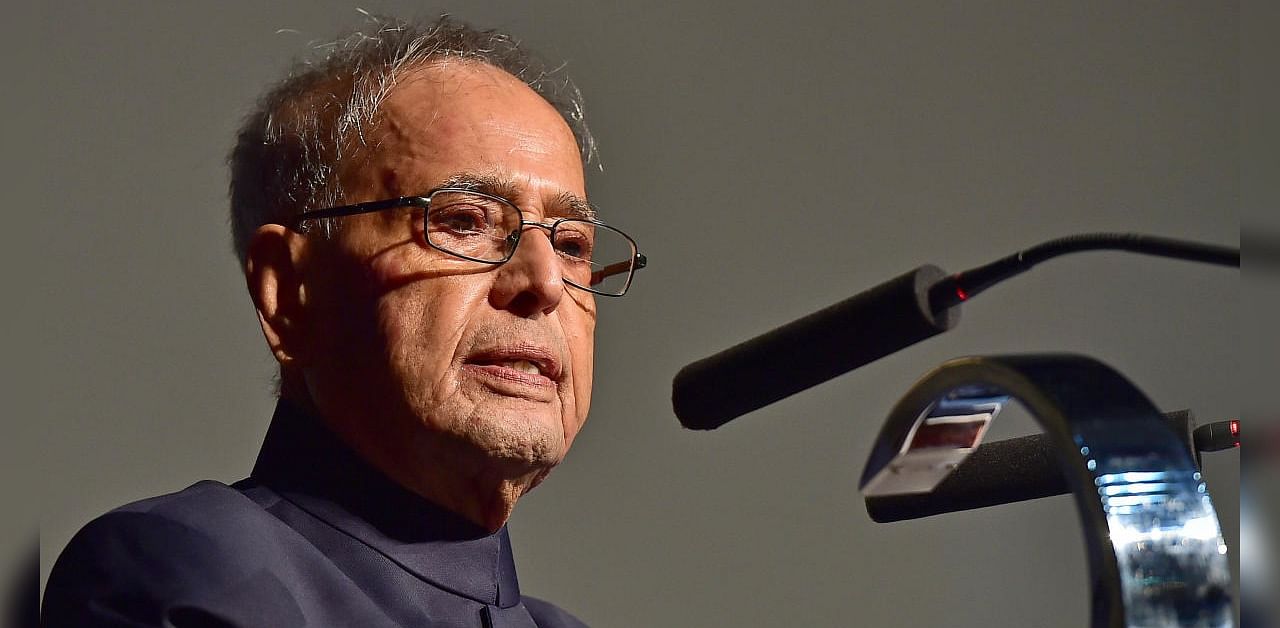
Prime Minister Narendra Modi plays up his personal equations with foreign leaders "too much" and taking it as true is a "bit absurd" as national interest is always driven by "cold, hard" facts, former President Pranab Mukherjee has written.
Mukherjee, who passed away on August 31 last year, made his comment in the fourth volume of his autobiography as he referred to Japanese Prime Minister Shinzo Abe and Prime Minister Modi. Both Modi and Abe, shower praises at each other and consider themselves friends.
The former president, who had cleared the final draft of the book days before his hospitalisation and death, sought to debunk the perception in certain quarters that India and Japan became friends since Modi assumed power in 2014, saying it was not correct.
Referring to his stint as Defence Minister during which talks on defence cooperation moved forward as well as visits of Japanese emperor Akihito and his Queen in 2013, Mukherjee said that Abe had visited India before Modi became the Prime Minister and the two countries had developed deep links in shared areas of activities and concerns.
"Abe's views on and rapport with Modi have been beneficial to India, though I do believe that personal friendships really do not matter in areas of national interest, which are driven by cold, hard facts," he wrote.
Mukherjee said he "totally oppose the expressions of personal friendships (Abe called Modi his most dependable friend), because friendships are between countries" and that he did not subscribe to the belief that "such special friendships have any worth when it comes to international relationships, where every relationship is impersonal".
"Even my friendship with Bangladesh was completely political. Of course, my relationship with Sheikh Hasina was personal when she was in exile. Personally, I believe that PM Modi plays up personal equations too much. To take such relationships as true is a bit absurd," Mukherjee said.
Modi had earlier also displayed his "friendship" with the former US President Barack Obama by calling him by his first name, which does not find a mention in the book.
Mukherjee said there were several instances from the past to support his theory and referred to Jawaharlal Nehru's friendship with Zhou Enlai of China.
Several important Chinese leaders, who later fought and rebelled against those who wanted to establish the People’s Republic, were Nehru’s personal friends. However, Mukherjee said, India was the only country to recognise the People's Republic of China in 1948 after the erstwhile Soviet Union as "we kept our national interests and not personal friendship in mind".
But after Nehru’s death in 1964, he said, there was hardly any reference about it in Chinese newspapers and there was only one report that a condolence message was sent to the departed Indian leader’s daughter, Indira Gandhi, on May 27, 1964. "The Chinese have a peculiar way of expression," he added.
